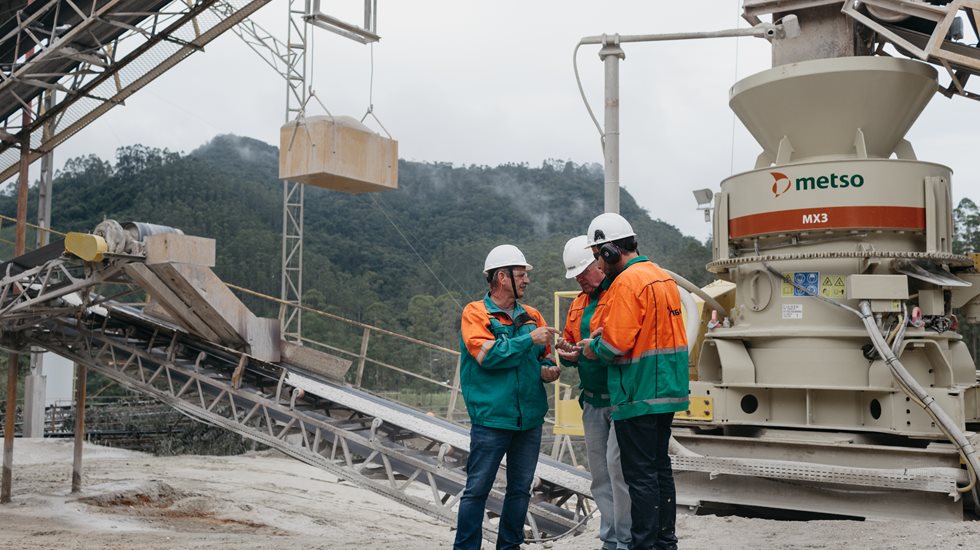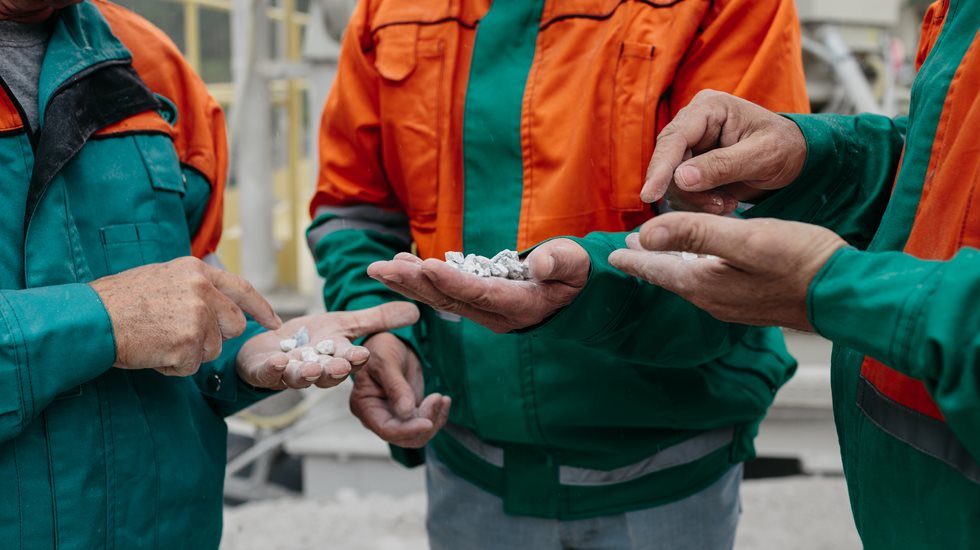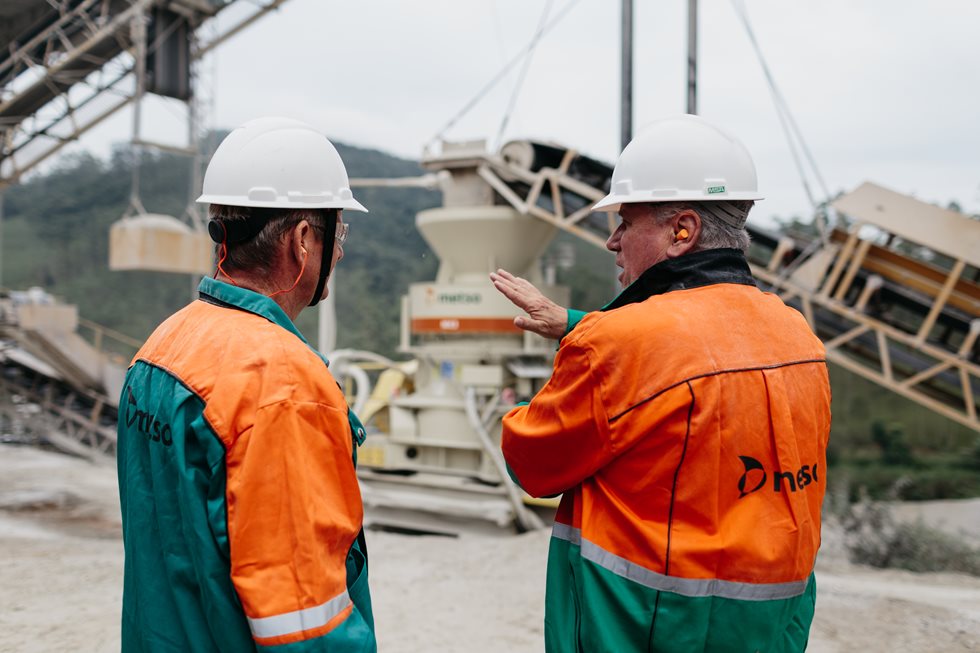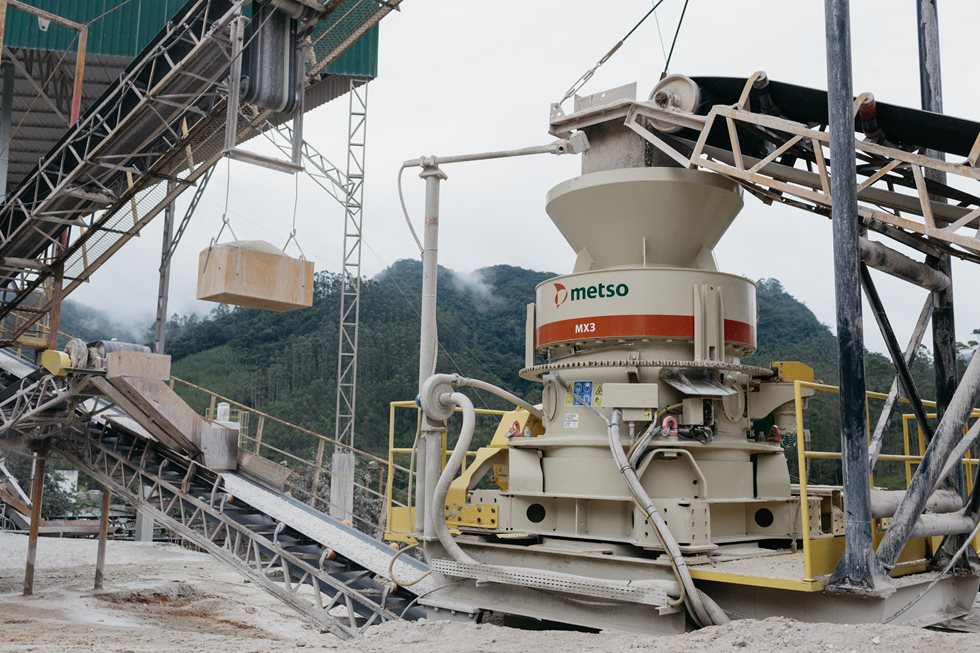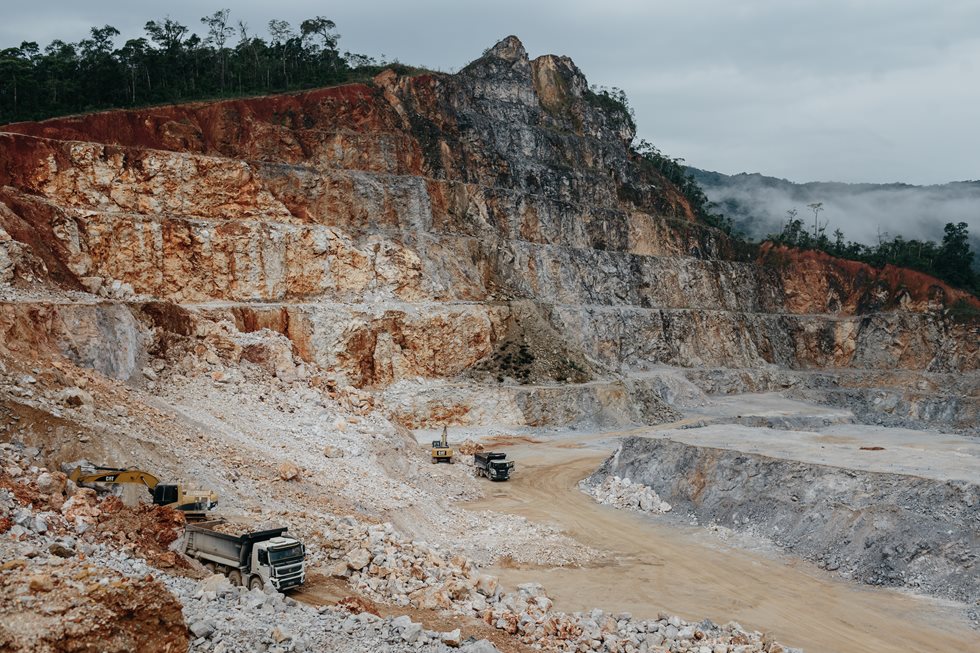Manufactured sand production doubled
Calwer Mineração adopted the MX3 to produce manufactured sand at the Botuverá plant in Santa Catarina. The equipment is one of the first in operation in the world, and it was introduced at Bauma 2019 in Germany last April. Installed in February 2019 (as a pilot), Calwer's MX3 operates in tertiary crushing, offering great advantages in replacing the previous Barmac VSI crusher.
"We doubled the production of manufactured sand, going from 30 tons per hour to 60 tons per hour. We have had production peaks of up to 78 tons per hour already," explains José Augusto Werner, director and founder of Calwer. Another advantage, he notes, is the significant 70% reduction in crusher energy consumption. In addition, the MX3 has reduced the monthly running hours by 10 hours. "We have been able to produce more manufactured sand in less time and with lower energy costs," summarizes the director.
The choice of equipment was strategic for Calwer. With the reduction in construction works, the company decided to reduce the production of gravel and to focus on the production of higher quality manufactured sand to meet the needs of the region.
With the MX3, the quarry delivers manufactured sand with a chemical and physical composition that allows their customers to reduce their concrete production per cubic meter costs by EUR 5.5 (R$ 25 reais). In addition, manufactured sand increases the resistance of the concrete from 5 to 7Mpa. As a result, Calwer has been able to sell the manufactured sand for a higher price.
